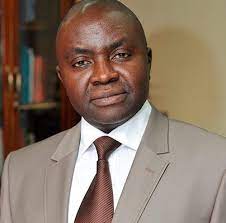The Centre for the Promotion of Private Enterprise (CPPE), one of the leading organized private sector (OPS) advocacy groups, has canvassed key fiscal, monetary and policy reform initiatives that the new President Bola Ahmed Tinubu-led administration should prioritize in its reform agenda to ensure improved socioeconomic well-being for the citizenry and sustainable growth of the nation’s economy.
The Centre, in a Note titled ‘Fuel Subsidy Removal: Ensuring Inclusive, Impactful and Sustainable Palliative Measures’ issued on Sunday by its Director/Chief Executive Officer, Dr. Muda Yusuf, while assessing the implications of the petrol subsidy removal indicated that transportation costs had gone up by between 20 – 50 per cent in many cases nationwide.
While reminding the government about the criticality of transportation to the citizens, wage earners, small business owners, informal sector operatives, artisans and the unemployed’s survival, he charged the new administration to urgently respond to the current crisis, focusing on the scope of impact, effective targeting, inclusion and the right messaging.
He elaborated: “In truth, the pains inflicted on the citizens, especially the vulnerable segments of the society, were very severe. A strike action would have further exacerbated an already difficult situation for the citizens. Opting for strike actions should only be a matter of last resort.
“The sufferings are real and affecting the citizens across all segments of our society – public service, private sector, informal sector, artisans, students, SMEs, the unemployed, the aged, pensioners etc. There is therefore a need for urgent responsive actions from all tiers of government. The mitigating measures should be holistic and inclusive and should be driven by a combination of direct interventions, fiscal policy measures and monetary policy actions”, the CPPE boss added.
The economist noted that the citizens had demonstrated an incredible understanding, tolerance, patience and resilience and as such government cannot afford to overstretch this gesture and cannot afford to be perceived as taking them for granted, adding that reciprocity by the political leadership at all levels is urgent, exigent and crucial.
Specifically, he maintained that the hardship mitigating measures could be classified into immediate, short term, medium and long term and that actions by the government would send the right signals to citizens and demonstrate government’s sensitivity to the devastating impact of the subsidy removal on the poor.”
He further clarified: “Immediate panaceas need to be activated, not just with respect to transportation costs, but the surging cost of living generally. The agreement signed with labour did not reflect the desired urgency of the mitigation measures. It is also scanty on immediate actions and quick wins which are needed to immediately assuage the feelings of the ordinary citizens and stabilize the social environment.”
This is even as Yusuf suggested that the Nigerian National Petroleum Company Limited (NNPCL) should also considers a direct intervention measures such as selling petroleum products at a price which is 10 per cent less than that of other private sector marketers to help cushion the effects of the subsidy removal on the citizens.
The CCPE chief also recommended that one of the quick wins in the power improvement strategy should be implemented immediately to reduce the demand for petroleum products [petrol and diesel] for purposes of electricity generation by households and businesses.
In addition, he also charged the new administration to urgently consider putting an end to the pricing of gas in dollars for domestic use, especially for manufacturers.
According to him, to achieve this, urgent steps must be taken by government to put an end to this dollarization framework to ensure a moderation in energy cost for the manufacturing sector, adding that Government should take urgent steps to reduce the cost of Liquefied Petroleum Gas, LPG to households.
While commending the Federal Government on the recent reduction in the LPG price and that the price reduction trajectory should be sustained to ease pressure on households and prevent deforestation, Yusuf also advocated the need for the introduction of incentives to stimulate private investment in pipelines as this would sufficiently reduce distribution costs of petroleum products.
This is even as he made a strong case for the abolition of all forms of taxes and import duty on renewable energy equipment to boost the adoption of renewable energy by households and SMEs. Such waivers would make renewable energy adoption affordable, adding that the reduction should cover relevant equipment like solar panels, inverters, batteries etc. This would make citizens less reliant on the electricity grid.”
Other recommendations of the CPPE to stimulate economic growth include drastic reduction in import duty on intermediate products for food processing industry in the country, zero import duty and zero VAT on all agricultural inputs – machineries, agrochemicals, fertilizer, etc; and provision of generous tax and other fiscal incentives for private investors in healthcare to conserve foreign exchange through a reversal of the growing medical tourism in the country.
Also, the Centre’s CEO recommended generous tax and other fiscal incentives should be given to private investors in education to enable them complement the efforts of government in providing quality education , especially at the primary and secondary levels as well as tax and tariff concessions to incentivize rapid growth in investment in refineries.
In addition, the CPPE boss said gross monthly salaries of N200,000 and below should be exempted from payment of Personal Income Tax (PIT) as this will give the low-income earners opportunity to improve their spending capacity and reduce poverty.






